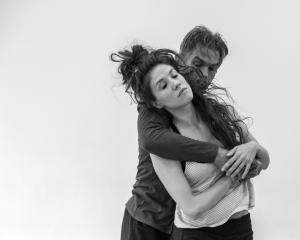
Information extracted from 13,000 face-to-face interviews clearly showed those with same-sexual or bisexual orientation were more likely to have experienced negative events in childhood, Associate Prof Elisabeth Wells said yesterday.
People who had experienced sexual abuse as children were three times more likely to identity themselves as homosexual or bisexual than those who had not experienced abuse, she said. Also, the more adverse events someone experienced in childhood, the more likely they were to belong to one of the "non-exclusively heterosexual" groups.
Associations between adverse events and sexuality group were found for sexual assault, rape, violence to the child and for witnessing violence in the home.
Other adverse events, such as the sudden death of a loved one, serious childhood illness or accident, were only slightly associated with non-heterosexual identity or behaviour.
Prof Wells, a consultant statistician based in the department of public health and general practice at the university's Christchurch campus, further analysed answers to a series of questions about sexual orientation and home life asked as part of a major New Zealand mental health survey carried out in 2003 and 2004.
She said there was no way of knowing from her study why there was a link between negative events in childhood and same-sex sexual orientation.
"We took a life-course approach, looking at where people had come from and where they have got to. But there was no opportunity to ask people why they [identified as homosexual or bisexual] and whether they thought that was linked to their childhood experiences."
She said she would support further research being carried out.
Debate has long raged over whether same-sex orientation is primarily influenced by nature - genetics - or nurture - environment.
Prof Wells said she expected her findings would add fuel to the debate.
It might also anger the gay and lesbian community and inflame the "Christian right wing", she said.
"I suspect there might be some gay and lesbian people who will be indignant, but it is not my intention to anger them. You could say that if someone was sexually abused as a child, chooses to live as a homosexual and lives life well, then that is not a bad thing. But if they are living a homosexual life and regretting it, that is another matter."
It was important to remember that the majority of people in her study who said they had disturbed backgrounds were heterosexual in behaviour and identity, she said.
Prof Wells' study also looked at demographic factors such as a person's living situation, household income, whether they were married and whether they had children.
Of the females who identified as homosexual, more than 40% had been married and had children, she said, whereas this was much less common for male homosexuals (13%).
Only 10% of exclusively heterosexual people lived alone, compared with almost 17% of bisexuals and 19% of homosexuals.
There were no clear-cut differences in educational achievement or household income between the groups, she said.
Comments
Rather flawed. Feminine boys are shown to be targets for child abuse, both sexual and violent abuse. Xu and Zhang (2015) found that both gay and straight men who were feminine were much more likely to sexually abused than their masculine gay and straight counterparts. Because roughly 50% of gay men report feminine behaviour as children, that means they will disproportionately be abused. Feminine boys are much less trouble for a pedophile, and appear to evoke anger in some men who physically assault their children. Additionally, heterosexual men are much more likely to deny child abuse out of appearing masculine, especially in a face to face interview. Even so, when you look at raw data about 15-20% of overall gay people were abused as children, so it's simply not explanative of the wider gay population. Female orientation appears to be much more malleable to abuse than male orientation. A breakdown of male/female would have been useful since females seem to be put off men due to abuse, but men don't seem to 'go gay' because of abuse. Elisabeth Wells study should've taken more care to refer to better explanations of why this might be disproportionately reflected in research.












